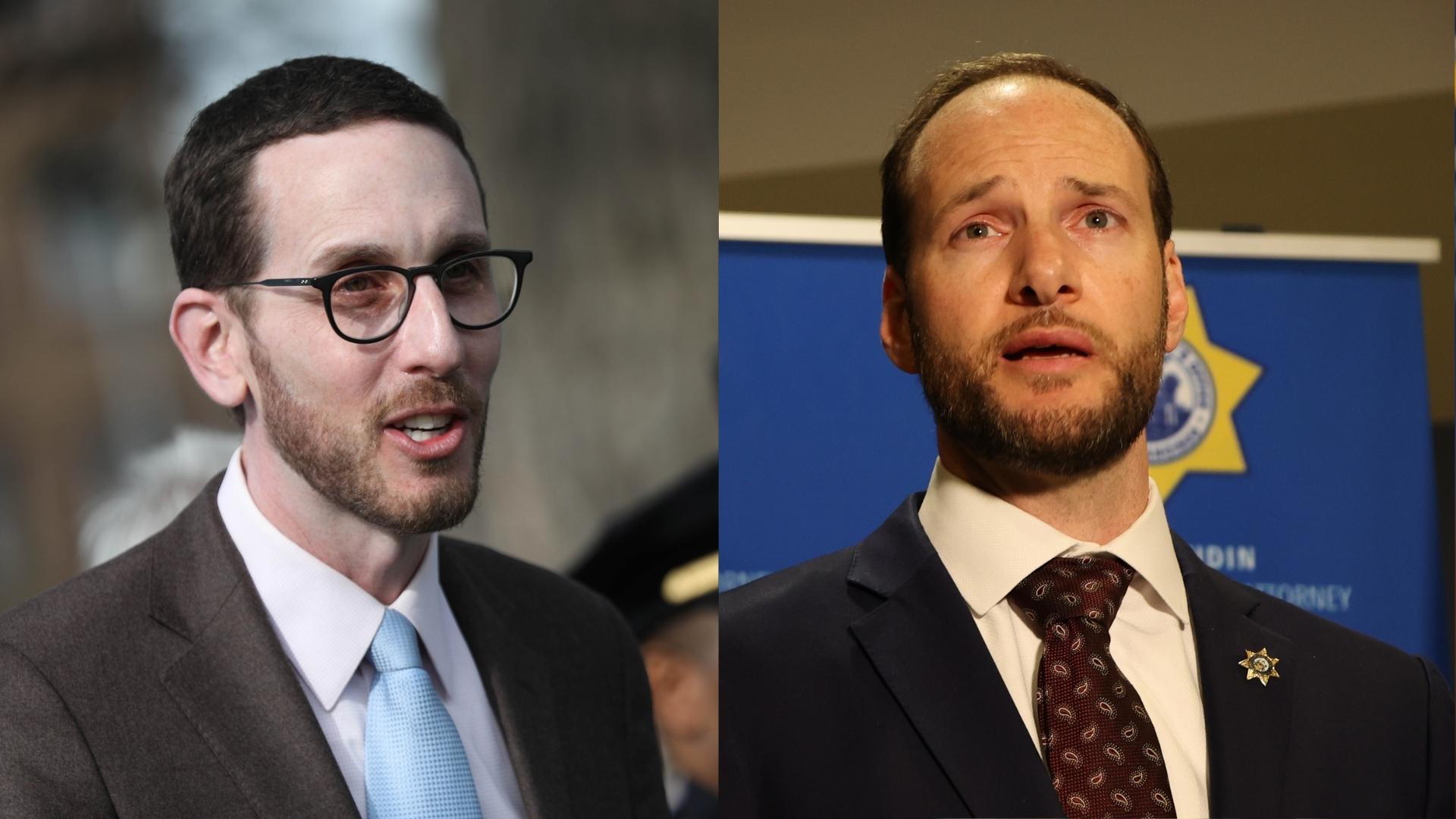San Francisco District Attorney Chesa Boudin joined state Sen. Scott Wiener on Tuesday to rally behind legislation aimed at preventing California law enforcement agencies from misusing DNA collected from sexual assault survivors and other crime victims.
The legislation, SB 1228 from Wiener and Assemblymember Phil Ting, both of whom represent the city, is a statewide response to Boudin revealing that San Francisco police used DNA from a rape kit to arrest a sexual assault survivor in connection with an unrelated property crime.
The bill would bar police in California from using DNA collected from crime victims or witnesses for purposes other than investigating the incident at hand, and from entering that DNA into any databases that could be used to match victims or witnesses to unrelated crimes.
Boudin joined Wiener and other supporters of the legislation for a press conference Tuesday, as the bill passed out of the Senate Public Safety Committee and advanced to the Appropriations Committee. If the bill makes it out of that committee, it will move to the Senate floor for a vote by the end of May.
Boudin dropped a felony burglary case against a woman in February after discovering that police identified her as a suspect by running an unknown DNA sample—collected during a property crime investigation—through a forensic database that included DNA from her rape kit.
While it’s unclear how widespread such practices are throughout California, Boudin said the legislation is meant to ensure that a similar situation never happens again—and that sexual assault survivors are not dissuaded from cooperating with authorities.
“We are committed to doing everything in our power to hold people who cause harm, who commit crime, who use sexual violence accountable,” said Boudin, who also sponsored the legislation. “To do that, we need survivors of sexual assault to feel safe coming forward and reporting what they have experienced. We need them to trust law enforcement partners.”
Wiener said sexual assault survivors already display “enormous courage” by undergoing an invasive rape kit examination after experiencing a traumatic event.
“To signal to survivors that if you take that step to come forward, that that decision could be used against you in the future, it is one more barrier and one more reason for sexual assault survivors not to come forward. And we are all less safe as a result,” Wiener said. “We need to do everything in our power to encourage survivors to come forward.”
Sen. Nancy Skinner, D-Berkeley, another co-author of SB 1228, said the bill would ban a practice that is “morally wrong” and “bad for public safety.” “Any system that discourages rape victims from coming forward is a system that supports rapists, and that is wrong,” Skinner said.
While the state legislation is pending, San Francisco Police Chief Bill Scott has made policy changes to end the practice within his department.
The city’s Board of Supervisors is also expected to take a final vote Tuesday to approve legislation from Supervisor Hillary Ronen that would legally prohibit any abuses of DNA evidence in San Francisco.
Meanwhile, the woman at the center of the controversial case in San Francisco has hired an attorney and is threatening to sue the city.
